W.H.O. Experimenting on African Children Without Informed Consent
by Jeremy R. Hammond
March 3, 2020

The World Health Organization (WHO), a pair of articles recently published in The BMJ have revealed, is sponsoring an experimental study of a controversial malaria vaccine among African children without obtaining informed consent from parents.
Data from prior clinical trials of the vaccine, manufactured by the British multinational pharmaceutical corporation GlaxoSmithKline (GSK), have shown it to be associated with an increased risk of clinical malaria after four years, a tenfold increased risk of meningitis, an increased risk of cerebral malaria (in which the parasitic organisms block the flow of blood to the brain, causing swelling and potential brain damage), and an increased risk of death that was disproportionately higher for female children.
Concerningly, apart from failing to properly inform parents about the risks or even letting parents know that their children are being experimented upon, the WHO intends to make a decision based on this trial about whether to recommend the vaccine for routine use throughout sub-Saharan Africa after just twenty-four months of study, which is not enough time to determine the vaccine’s effect on mortality.
This is especially concerning in light of scientific research showing that other non-live vaccines—such as the diphtheria, tetanus, and whole-cell pertussis (DTP) vaccine—are associated with an increased rate of childhood mortality. The WHO, however, has dismissed this evidence and continues to recommend the DTP vaccine for routine use in children in developing countries.
The behavior of policymakers at the WHO, while highly alarming, is not at all surprising given the organization’s conflicts of interest, including industry funding and members of its vaccine advisory group having financial ties to pharmaceutical companies.
Waning of Vaccine-Conferred Immunity After Four Years
GSK’s malaria vaccine has long been under development, but while the company and the WHO appear intent on rolling it out across Africa, concerning data from clinical trials has been publicly known for years. In 2013, the results of four years of trial follow-up in Kilifi, Kenya, were published in the New England Journal of Medicine (NEJM). The data showed that, while apparently effective at preventing clinical malaria initially, after four years, the vaccine had negative effectiveness, meaning that children who received the vaccine had an increased risk of symptomatic parasitic infection.
That study involved randomly vaccinating Kenyan children aged five to seventeen months with either the experimental malaria vaccine or a rabies vaccine. Importantly, the clinical endpoint of the trial was malaria incidence, not mortality. Even so, the data showed a vaccine efficacy of only 43.6 percent in the first year, which fell to –0.4 percent in the fourth year. While the negative efficacy was not statistically significant, the study authors acknowledged that the results show that the immunity conferred by the vaccine wanes after just a few years.
While the vaccine was judged to be initially effective in stimulating the production of antibodies against the sporozoite stage of the parasite, which is the form typically introduced into the blood of human hosts by mosquitos, the researchers acknowledged that a high level of anti-sporozoite antibodies doesn’t necessarily equate to immunity and that the immunity conferred by the vaccine differs from that acquired naturally through infection.
While anti-sporozoite antibodies “may mediate protection and were associated with a reduced risk of clinical malaria”, a waning of antibody titers was observed over time in children who received the malaria vaccine.
Additionally, they suggested that because children receiving the malaria vaccine had reduced exposure to later blood-stage parasites, they would have had “delayed acquisition of natural immunity”, which could also help explain the negative efficacy by the fourth year. In other words, the rapidly waning vaccine-conferred immunity was achieved at an opportunity cost of a delayed and superior natural immunity.[1]
… scientific reviews highlight the complexity of immunity to malaria and that even after 100 years we still have much to learn.
The Importance of Natural Immunity and Scientific Uncertainty about How It’s Achieved
The uncertainties about how immunity to malarial parasites is achieved were elucidated in an editorial in the journal Parasitology in 2016. Noting that “individuals living in endemic areas naturally acquire immunity to symptomatic malaria”, its authors pointed out that “immune correlates of protection” were not yet understood by scientists. While certain “antigen-specific immune responses associated with protection against malaria infection and disease” have been identified, scientific reviews “highlight the complexity of immunity to malaria and that even after 100 years we still have much to learn.”
“A lack of understanding of the mechanisms by which natural immunity to malaria is achieved and how it is maintained”, they noted, “has long been proclaimed as a major hurdle to the development of a malaria vaccine.”
Highly important to this question is the “variable nature of malaria epidemiology in different endemic areas”, which “underlines the importance of natural exposure in development of immunity”. In areas with lower transmission, population immunity is not achieved, and clinical infections occur frequently “in all age groups”. By contrast, “immunity is acquired through constant exposure to the parasite”, which is especially important for infants, who are at highest risk of dying from malaria.
This is because, in endemic areas, infants are protected from birth to around six months of age through the transfer of antibodies from naturally immune mothers to their babies. (This is known as passive maternal immunity and can occur both prenatally through the placenta and postnatally through breastmilk, though the authors don’t specify the relative importance of each of these mechanisms in the specific case of malaria.)
The authors pointed out that in the absence of mass vaccination campaigns, the number of malaria cases worldwide had halved over the past decade. Somewhat paradoxically, “because immunity is acquired through constant exposure to the parasite, with the decrease in transmission, there are increasing concerns about declining immunity in communities and a shift towards greater susceptibility to symptomatic disease.”
Whereas in endemic areas, natural immunity is generally acquired in childhood, in areas where transmission has been successfully reduced, “rebounds of malaria infections and shifts in cases to older individuals are occurring”.
As this shift continues, the risk could increase to infants born to mothers who have not yet had enough exposure to acquire natural immunity and therefore aren’t able to confer passive immunity to their babies.
… it is undoubtedly a reflection of the myopic focus within the scientific community on developing vaccines as a one-size-fits all solution for disease prevention, as opposed to first dedicating the resources necessary to understand the risk factors for severe disease and differing individual immune responses and then developing targeted interventions.
While the vaccine is designed to stimulate the production of anti-malaria antibodies, as the authors of the Parasitology paper point out, another branch of the immune system known as cell-mediated immunity also plays an important role.
They observed a dearth of science in this area, with most studies having focused on antibody responses and “relatively few” that have “investigated cellular responses to malaria infection.” While they did not comment upon the reasons for this, it is undoubtedly a reflection of the myopic focus within the scientific community on developing vaccines as a one-size-fits all solution for disease prevention, as opposed to first dedicating the resources necessary to understand the risk factors for severe disease and differing individual immune responses and then developing targeted interventions.
Although “there remains much to be learnt about naturally acquired immunity to malaria”, the authors noted that the science is clear that cell-mediated immunity “plays a critical role in determining the outcome of disease and development and maintenance of immunity.”
A broad array of cellular responses not involving the production of antibodies are important for the development of immunity, and how these responses might affect the immune responses to a malaria vaccine—or vice versa—remains “unknown.”[2]
This is concerning because non-live vaccines such as GSK’s malaria vaccine generally tend to skew the immune response toward humoral, or antibody, immunity and away from cell-mediated immunity, which is another means by which mass vaccination could potentially cause long-term detriment to population immunity in African communities.
Nevertheless, the journal editors incongruously pointed to the ability of humans to acquire natural immunity as “a strong rationale for the development of a malaria vaccine”—and despite the remaining uncertainties about how the vaccine will affect the immune system and data showing serious potential harms, GSK and the WHO are pushing for implementation of the vaccine in the routine childhood schedules of African countries.
Increased Risk of Clinical Malaria Among Vaccinated Children After Four Years
The four-year follow-up study itself provided evidence that the malaria vaccine achieves humoral immunity at the opportunity cost of lost cell-mediated immunity. Despite the waning of antibody levels over time among children who received the malaria vaccine, even in the fourth year, during which negative efficacy was observed, these children still had significantly higher anti-sporozoite antibody titers than children in the control group. This indicates that mechanisms other than the production of anti-sporozoite antibodies are important for immunity and in the long-term protected children in the control group from malaria.
As the authors reiterated, the observed waning immunity of the vaccine might have been due to a delayed “acquisition of natural immunity to blood-stage parasites” in children who received the malaria vaccine in comparison with those who didn’t.[3]
That is, the data showed a negative efficacy, meaning that children who received the malaria vaccine were at a higher risk of clinical malaria than those who didn’t.
In 2016, another study was published in the New England Journal of Medicine examining seven years of follow-up data from the clinical trial in Kenya. This time, the results were even more concerning. While the vaccine initially appeared protective against clinical malaria, this ostensible benefit was “more than offset” as the risk to vaccinated children in areas with high exposure increased over time.
Among this subgroup of children in areas of higher transmission, the vaccine had a statistically significant –43.5 percent efficacy. That is, the data showed a negative efficacy, meaning that children who received the malaria vaccine were at a higher risk of clinical malaria than those who didn’t.
The authors acknowledged that one explanation for this result is that, while the vaccine is effective at stimulating the production of anti-sporozoite antibodies, it “does not induce clinical immunity against blood-stage parasites.” Prior research had shown “lower levels of antibodies against blood-stage parasites” in children who received the malaria vaccine compared with children who didn’t.[4]
This refers to a later stage in the cycle of malaria infection. Upon exposure through mosquito bites, the sporozoite-stage parasites migrate into the liver, where they grow and multiply before moving on and infecting the red cells of the blood. This latter stage is what’s known as the “blood stage” of infection, which is what causes the symptoms of malaria.[5]
As the study authors again reiterated, the increased antibody response to sporozoite-stage malaria may come at an opportunity cost of delayed acquisition of immunity to blood-stage parasites, “leading to an increased in episodes of clinical malaria in later life.”
They also stated that there was no significant difference in adverse events between children receiving the malaria vaccine and controls, but their data did not illuminate the true rate of adverse events following malaria vaccination since the children in the control group had received another vaccine rather than an inert saline placebo.[6]
… the mere attendance of a child at school on a day when vaccinations are being administered is considered implicit consent by the parents for the child to be vaccinated.
Increased Risk of Death Among Children Receiving the Malaria Vaccine
Despite that trial’s finding of negative vaccine efficacy after the fourth year of follow up, the WHO has pressed forward with its apparent agenda to roll out GSK’s vaccine in the routine childhood schedules of African countries, and its eagerness to do so is such that it’s evidently unconcerned about violating individuals’ right to informed consent in order to accomplish the goal.
In a 2014 policy document, the WHO described an “implied consent process” for vaccination wherein parents would need to explicitly opt their children out of vaccination rather than explicitly opting them in. Under this practice, the mere attendance of a child at school on a day when vaccinations are being administered is considered implicit consent by the parents for the child to be vaccinated.
“However,” the document incongruously albeit appropriately added, “when children present for vaccination unaccompanied by their parents, it is challenging to determine whether parents indeed provided consent. Therefore, countries are encouraged to adopt procedures that ensure that parents have been informed and agreed to the vaccination.”[7]
Yet, in the case of GSK’s malaria vaccine, the WHO has disregarded its own advice that explicit consent be obtained from parents for their children to be vaccinated.
This situation was elucidated in an analysis published in the BMJ on January 24, 2020, written by Professor Peter Aaby of the Statens Serum Institut in Denmark and coauthors. They reported that clinical trials of GSK’s malaria vaccine had shown it to be associated with a higher risk of meningitis, cerebral malaria, and death—particularly among females.
The position espoused by the WHO has been that these findings may have been due to chance, but, as Aaby and his coauthors noted, “we should be particularly careful about introducing new vaccines amid unresolved safety concerns”. As an example, they cited the “recent use of a dengue vaccine in the Philippines that led to increased morbidity and mortality from dengue”.[8]
In that case, the Philippines government implemented a dengue vaccine manufactured by Sanofi Pasteur into its routine childhood schedule upon the recommendation of the WHO. Hundreds of thousands of doses were administered under the pretense of a proven “safe” vaccine before its use was halted because it was shown to increase the risk of serious dengue infection among children who had not already experienced a prior infection. The public outrage was all the more pronounced because it was also learned that Sanofi, a French multinational corporation, as well as the WHO had ignored early warnings from clinical trials that the vaccine might cause precisely that outcome.[9]
As Aaby and his coauthors explained, the safety concerns are now being investigated in a pilot implementation study that will include 720,000 children in the African countries of Ghana, Kenya, and Malawi. In April 2019, the WHO’s Strategic Advisory Group of Experts (SAGE) approved a framework for policy and a study protocol. Under the protocol, the children are to be randomly allocated to receive the malaria vaccine or no malaria vaccine (with no placebo), and the study is to last four to five years.
Nevertheless, the WHO intends to make a decision on whether to recommend the vaccine for routine use in other African countries after just twenty-four months of follow up based on the prevention of “severe malaria” as a surrogate measure of the vaccine’s effect on overall mortality.
This decision, Aaby and his coauthors remarked, “seems strange” given existing data from clinical trials showing that the case fatality among children hospitalized for severe malaria was doubled for children who received the malaria vaccine compared to those who didn’t. Female children who received the malaria vaccine also had twice the risk of dying from any cause. The observed excess mortality also increased after administration of a booster dose of the vaccine, and this trend “was particularly marked for female children”, for whom the risk of death was more than tripled.
Hence, they reasoned, even though the vaccine “might slightly reduce the risk of severe malaria, recipients might be at higher risk of dying (from malaria and overall).”
The decision by the WHO to make a policy determination after just twenty-four months would bias its determination in favor of the vaccine since it ignores the waning efficacy of the vaccine over time and since “excess mortality might become apparent only after longer follow-up”.
The first reason for the WHO’s decision in this regard is that an increasing resistance of parasites to anti-malarial drugs has heightened the sense of urgency for finding additional control measures. The second reason is that “GlaxoSmithKline might have problems maintaining the production line if the decision is delayed.”
A key finding of their research was that ‘DTP was associated with 5-fold higher mortality than being unvaccinated.’
The WHO’s decision is even more puzzling in light of other non-live vaccines that have been associated with increased female mortality, such as the DTP vaccine, which studies had “consistently” shown to be “associated with higher female mortality”.[10]
Indeed, Peter Aaby has pioneered research into what’s been termed in the scientific literature as “non-specific effects” of vaccines. One of his coauthors on the BMJ analysis is Professor Christine Stabell Benn, also of the Statens Serum Insitut, which operates under the auspices of the Danish Ministry of Health and is responsible for the purchase and supply of vaccines to Denmark’s national vaccination programs.
For decades, Aaby and his colleagues have been studying the effects of vaccines on overall mortality, and their findings with respect to the DTP vaccine are highly alarming. As Aaby, Benn, and coauthors bluntly stated in a 2017 research paper published in EBioMedicine, “All currently available evidence suggests that DTP vaccine may kill more children from other causes than it saves from diphtheria, tetanus or pertussis. Though a vaccine protects children against the target disease it may simultaneously increase susceptibility to unrelated infection.”
A key finding of their research was that “DTP was associated with 5-fold higher mortality than being unvaccinated.”
“Unfortunately,” they added, “DTP is the most widely used vaccine, and the proportion who receives DTP is used globally as an indicator of the performance of national vaccination programs.”
Although due to concerns about an unacceptably high rate of adverse events, developed countries like the United States have long since phased out the use of the DTP vaccine in favor of a vaccine with an acellular pertussis component (DTaP), the WHO continues to recommend the use of DTP vaccine in developing countries.
“It should be of concern,” they relevantly remarked in the 2017 study, “that the effect of routine vaccinations on all-cause mortality was not tested in randomized trials.”[11]
In their recent BMJ article, Aaby and his colleagues noted that, in addition to finding the DTP vaccine to be associated with increased childhood mortality, their research had also “shown that other non-live vaccines—including the hepatitis B vaccine, inactivated polio vaccine, pentavalent vaccine [containing antigens for diphtheria, pertussis, tetanus, hepatitis B, and Haemophilus influenzae type b], and H1N1 influenza vaccine—are also associated with higher female mortality.”
As they emphasized in their concluding remarks, “There is no room for wishful thinking. Decision making must be grounded in robust evidence.”[12]
That’s sage advice that scientists and policymakers working for the World Health Organization seem intent on ignoring.
… to evaluate safety concerns about GSK’s malaria vaccine, which is known by the brand name Mosquirix. These include a rate of meningitis in those receiving Mosquirix 10 times that of those who did not, increased cerebral malaria cases, and a doubling in the risk of death (from any cause) in girls.
How the WHO Is Threatening Both Children’s Health and the Right to Informed Consent
As if all that wasn’t concerning enough, Aaby and his colleagues in their BMJ article also pointed out that, in the WHO’s pilot study now underway, “Written informed consent is not obtained.” Furthermore, “What participants are told about the outstanding safety concerns is unclear.”[13]
This violation of the right to informed consent was elucidated in a BMJ article written by associate editor Peter Doshi published on February 26, 2020. The study already underway in Malawi, Ghana, and Kenya, is intended in part, he reiterated, to evaluate safety concerns about GSK’s malaria vaccine, which is known by the brand name Mosquirix. These include “a rate of meningitis in those receiving Mosquirix 10 times that of those who did not, increased cerebral malaria cases, and a doubling in the risk of death (from any cause) in girls.”
Yet the WHO is not obtaining informed consent from parents to experiment upon their children. Instead, it has judged that “implied consent” is sufficient for entering 720,000 children into the study, as a WHO spokesperson confirmed to the BMJ.
“Recipients of the malaria vaccine”, wrote Doshi, “are not being informed that they are in a study. And the extent to which parents are being given information about the known safety concerns before vaccination is unclear.”
The WHO insisted that information was being “provided to the community and to parents through health talks and community outreach”, among other unspecified methods. But in the information that the WHO sent to the BMJ that it said was being shared with partner countries about the vaccine’s potential risks, while the increased rates of meningitis and cerebral malaria are listed, “the potential for increased risk of death among girls is not mentioned.”
When asked why not, the WHO responded that there is “insufficient evidence to classify gender specific mortality as a known or potential risk.” Of course, this dismissive assertion that there is no potential risk is belied by the scientific data showing otherwise.
When asked whether the WHO’s Research Ethics Review Committee had “waived the requirement for individual informed consent”, the WHO perplexingly answered that the vaccination was being done “in the context of routine vaccinations, where there is no requirement for written individual consent.”[14]
This contrasts starkly with the codification under international law of informed consent as a fundamental and inviolable human right, including the 1947 Nuremberg Code, the 1966 United Nations Covenant on Civil and Political Rights, and the 2005 Universal Declaration on Bioethics and Human Rights. Additionally, the International Ethical Guidelines for Biomedical Research Involving Human Subjects, which presents guidelines promulgated by the WHO, states that “the voluntary informed consent of the prospective subject” must be obtained. In the case of children too young to meaningfully exercise the right on their own, the consent must be obtained from their parents.[15]
The WHO’s position that informed consent is not required is also directly contradicted in the case of Malawi by the country’s constitution, which, as Doshi observes, explicitly states, “No person shall be subject to medical or scientific experimentation without his or her consent.”
As Charles Weijer, a bioethicist at Western University in Canada, told the BMJ, “implied consent is no consent at all.” He described the failure to acquire informed consent as “a serious breach of international ethical standards”.[16]
The WHO’s Conflicts of Interest
This latest revelation about the WHO’s inexcusable behavior comes on the heels of the revelation that the organization’s chief scientist, Dr. Soumya Swaminathan, was caught blatantly lying about vaccine safety in a WHO video published on YouTube. In the video, published on November 28, 2019, Dr. Swaminathan states that the public’s trust in vaccines “relies on the existence of effective vaccine safety systems.” “Robust vaccine safety systems” exist in countries around the world, she says, that ensure that vaccines are administered to children “without risks”.
Just five days later, on December 3, 2019, at a WHO Global Vaccine Safety Summit, Dr. Swaminathan told her assembled colleagues that they “cannot overemphasize the fact that we really don’t have very good safety monitoring systems in many countries” and that the risk of serious adverse events being discovered only after a vaccine is already on the market “is always there”.[17]
One possible explanation for the WHO’s behavior are its conflicting interests. It receives funding for its work from numerous pharmaceutical companies, including GlaxoSmithKline, Sanofi, and Merck.[18] Other contributors include the Bill & Melinda Gates Foundation and the CDC Foundation, a nonprofit organization created by the US Congress “to mobilize philanthropic and private-sector resources to support the Centers for Disease Control and Prevention’s critical health protection work”. The CDC Foundation in turn receives industry funding, including from GSK and the Merck Foundation.[19]
The WHO’s conflicts of interest were recently criticized in an expert review of the studies on the DTP vaccine’s effect on childhood mortality by Peter C. Gøtzsche, a widely respected scientist who has led the Nordic Cochrane Center in Denmark and helped found the Cochrane Collaboration, a prestigious international organization specializing in a type of study known as a meta-analysis, or a systematic review of the scientific literature.
As Gøtzsche noted, the discovery of “non-specific effects” of vaccines on immunity show that “it is impossible to predict what happens in terms of susceptibility to infections in general, of all types, when the immune system is being stimulated through vaccination”.
The WHO, he observed, had been dismissive of studies finding detrimental non-specific effects for the DTP vaccine while accepting studies finding beneficial non-specific effects for the measles vaccine. The WHO is “inconsistent and biased toward positive effects of vaccines. When a result pleases the WHO, it can be accepted, but not when a result does not please the WHO.”
Conflicts of interest within the WHO is another area of concern that potentially helps to explain this obvious bias. Of the fourteen experts tasked by the WHO to examine the evidence with respect to the DTP vaccine’s effect on mortality, eight “had relevant conflicts of interest in relation to companies producing vaccines”. Three “even had ties to GlaxoSmithKline”, one of the manufacturers of DTP vaccines.
While the WHO chose not to see these ties as conflicts of interest, “research has overwhelmingly demonstrated that people become influenced when they have financial ties to drug companies, even when these ties are not directly related to the drugs or vaccines in question.”
Gøtzsche observed the commonsense principle that “expert committees that give advice on immunization programs should not be involved with their re-assessment when research has demonstrated that a vaccine might increase total mortality.”
Additionally, “no one should be allowed to have financial conflicts of interest in relation to the pharmaceutical industry.” However, “This is not the case for WHO committees.”[20]
… outlawing the exercise of the right to informed consent, making it illegal for parents to decline vaccinates recommended for routine use in children by government policymakers—which include the DTP and hepatitis B vaccines, both shown to be associated with an increased rate of childhood mortality.
The UN, Too, Is Threatening the Right to Informed Consent
The WHO is not alone among international governmental organizations in threatening to undermine protections under international law against state violations of the right to informed consent. The UN, too, has acted contrary to its stated purpose in this regard.
On November 14, 2019, the parliament of the Republic of Maldives passed a bill effectively outlawing the exercise of the right to informed consent, making it illegal for parents to decline vaccinates recommended for routine use in children by government policymakers—which include the DTP and hepatitis B vaccines, both shown to be associated with an increased rate of childhood mortality.
Concerningly, the United Nations Children’s Fund (UNICEF) praised the Maldives legislature for passing the bill on the grounds that, once ratified, it would bring the country into closer compliance with UN Convention on the Rights of the Child (CRC).
On the contrary, however, while the bill did contain provisions that would bring the country into closer compliance with the Convention, outlawing the exercise of informed consent to vaccination certainly violates it.
The Convention recognizes that “the equal and inalienable rights of all members of the human family is the foundation of freedom, justice and peace in the world”. Its aim is to “promote social progress and better standards of life in larger freedom”.
The Convention acknowledges the child’s right to “be cared for by his or her parents.” States are obligated to “respect the rights and duties of the parents”, which certainly includes making decisions affecting the child’s health.
The Convention explicitly recognizes that “primary responsibility for the upbringing and development of the child” belongs not to the state but to the parents. The role of the state, instead, is merely to “render appropriate assistance to parents”, not to make decisions affecting the child on their behalf and without respect for their parental rights.[21]
Timed to coincide with the thirtieth anniversary of the Convention on the Rights of the Child, the bill outlawing informed consent for vaccinations was signed into law by Maldives President Ibrahim Mohamed Solih on November 20, 2019.[22]
On January 29, 2020, the newly appointed Prosecutor General for the Maldives government publicly threatened on Twitter, “In 22 days, we will be prosecuting parents who refuse to vaccinate their children.”[23]
The law came into force on February 20, 2020, on which occasion UNICEF saw fit to congratulate the Maldives government for enacting it, once again overlooking the state’s violation of the right to informed consent and the law’s incompatibility with the provisions of the CRC recognizing that the duty to exercise that right on behalf of the child belongs not with government bureaucrats but with the child’s parents or legal guardians.[24]
Conclusion
It should be of great concern to every free-thinking inhabitant of this planet that the WHO and UN, along with state governments around the world, are pushing for an ever-increasing number of childhood vaccinations while ignoring scientific evidence that doesn’t suit their political and financial agendas and while prejudicing the individual right to informed consent.
The WHO’s experimentation on African children without informed consent is but the latest illustration of how our children’s health and our fundamental human rights are being threatened by powerful people acting not of the public’s interests but in service to the pharmaceutical industry.
This article was originally published at Foreign Policy Journal on March 1, 2020.
Jeremy R. Hammond is an independent journalist and political analyst, publisher and editor of Foreign Policy Journal, author, and contributing writer for Children’s Health Defense. To stay updated with his journalism on vaccines and download his exclusive report “5 Horrifying Facts about the FDA Vaccine Approval Process”, click here to sign up for his newsletter.
References
[1] Ally Olotu et al., “Four-Year Efficacy of RTS,S/AS01E and Its Interaction with Malaria Exposure”, New England Journal of Medicine, March 21, 2013, https://doi.org/10.1056/NEJMoa1207564.
[2] Alyssa Barry and Diana Hansen, “Naturally acquired immunity to malaria”, Parasitology, January 8, 2016, https://doi.org/10.1017/S0031182015001778.
[3] Olotu et al., “Four-Year Efficacy”.
[4] Ally Olotu et al., “Seven-Year Efficacy of RTS,S/AS01 Malaria Vaccine among Young African Children”, New England Journal of Medicine, June 30, 2016, https://doi.org/10.1056/NEJMoa1515257.
[5] Centers for Disease Control and Prevention, “About Malaria: Biology”, CDC.gov, last reviewed November 14, 2018, accessed February 29, 2020, https://www.cdc.gov/malaria/about/biology/index.html.
[6] Olotu et al., “Seven-Year Efficacy”.
[7] World Health Organization, “Considerations regarding consent in vaccinating children and adolescents between 6 and 17 years old”, WHO.int, 2014, https://www.who.int/immunization/programmes_systems/policies_strategies/consent_note_en.pdf.
[8] Peter Aaby et al., “WHO’s rollout of malaria vaccine in Africa: can safety questions be answered after only 24 months?” BMJ, January 24, 2020, https://doi.org/10.1136/bmj.l6920.
[9] Seema Yasmin and Madhuskree Mukerjee, “How the World’s First Dengue Vaccination Drive Ended in Disaster”, Scientific American, April 2019, https://www.scientificamerican.com/article/how-the-worlds-first-dengue-vaccination-drive-ended-in-disaster/.
[10] Aaby et al.
[11] Søren Wengel Mogensen, “The Introduction of Diphtheria-Tetanus-Pertussis and Oral Polio Vaccine Among Young Infants in an Urban African Community: A Natural Experiment”, EBioMedicine, March 1, 2017, https://doi.org/10.1016/j.ebiom.2017.01.041.
[12] Aaby et al.
[13] Aaby et al.
[14] Peter Doshi, “WHO’s malaria vaccine study represents a ‘serious breach of international ethical standards’”, The BMJ, February 26, 2020, https://doi.org/10.1136/bmj.m734.
[15] Jeremy R. Hammond, “How Public Vaccine Policy Violates Our Right to Informed Consent”, Foreign Policy Journal, April 27, 2019, https://www.foreignpolicyjournal.com/2019/04/27/how-public-vaccine-policy-violates-our-right-to-informed-consent/.
[16] Doshi.
[17] Jeremy R. Hammond, “Fact Check: WHO Scientist Caught Lying to Public about Vaccine Safety”, Foreign Policy Journal, February 11, 2020, https://www.foreignpolicyjournal.com/2020/02/11/fact-check-who-scientist-caught-lying-to-public-about-vaccine-safety/.
[18] World Health Organization, “Contributors”, Open.WHO.int, accessed February 29, 2020, http://open.who.int/2018-19/contributors/overview/vcs. The WHO Programme Budget Portal financial flow under its Budget and Financing section shows how funding from private entities is directed: http://open.who.int/2018-19/budget-and-financing/flow. This page shows that Merck & Co., Inc distributed $3.4 million to WHO program areas including neglected tropical diseases, Sanofi-Aventis distributed $1.4 million mostly for neglected tropical diseases, and GSK distributed $1.1 million entirely for work on neglected tropical diseases. These figures are also viewable under the Contributors section, which specifies that the amounts are of funding by contributor for the biennial period of 2018 through the fourth quarter of 2019: http://open.who.int/2018-19/contributors/contributor.
[19] CDC Foundation, “Corporations, Foundations & Organizations: Fiscal Year 2019 Report to Contributors”, CDCFoundation.org, accessed February 29, 2020, https://www.cdcfoundation.org/FY2019/organizations.
[20] Peter C. Gøtzsche, “Expert Report: Effect of DTP Vaccines on Mortality in Children in Low-Income Countries”, Vaccine Science Foundation, August 12, 2019, https://vaccinescience.org/expert-report-effect-of-dtp-vaccines-on-mortality-in-children-in-low-income-countries/.
[21] Jeremy R. Hammond, “UN Praises Maldives Bill Outlawing Informed Consent for Pharmaceuticals”, Foreign Policy Journal, November 16, 2019, https://www.foreignpolicyjournal.com/2019/11/16/un-praises-maldives-bill-outlawing-informed-consent-for-pharmaceuticals/. See the article for further discussion. Sources cited include: UNICEF Maldives, praises passage of Child Rights Protection Bill, Twitter, November 14, 2019, https://twitter.com/UNICEFMaldives/status/1194926669502590979. Ahmedulla Abdul Hadi, “Child Rights Protection Bill passed: Vaccinations mandatory, child marriages outlawed”, Sun Online, November 14, 2019, https://en.sun.mv/56582. “Parliament passes Child Rights Protection Bill, Vaccinations made mandatory”, One Online, November 14, 2019, https://oneonline.mv/en/18082. “New child protection law passed with mandatory vaccination”, Maldives Independent, November 14, 2019, https://maldivesindependent.com/society/new-child-protection-law-passed-with-mandatory-vaccination-149239. United Nations General Assembly, Convention on the Rights of the Child, adopted November 20, 1989, entered into force September 2, 1990, https://www.ohchr.org/Documents/ProfessionalInterest/crc.pdf. Republic of Maldives, Immunization Handbook for Health Care Professionals, 2015, http://hpa.gov.mv/DOCS/1451449250.pdf.
[22] Republic of Maldives, “President signs bills on Child Rights Protection and Juvenile Justice into law”, President’s Office, November 20, 2019, https://presidency.gov.mv/Press/Article/22631. “President ratifies landmark child protection laws”, Maldives Independent, November 21, 2019, https://maldivesindependent.com/society/president-ratifies-landmark-child-protection-laws-149361.
[23] Hussain Shameem, threatens to prosecute parents who choose not to comply with Maldives government vaccine policy, Twitter, January 29, 2020, https://twitter.com/HuShameem/status/1222464632989741058.
[24] UN Children’s Fund, “Maldives ratifies Child Rights Protection Act”, Press Release, February 20, 2020, https://www.unicef.org/maldives/press-releases/maldives-ratifies-child-rights-protection-act.


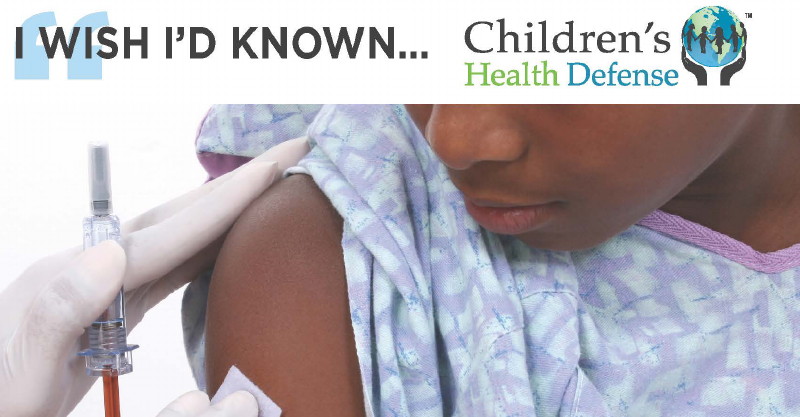
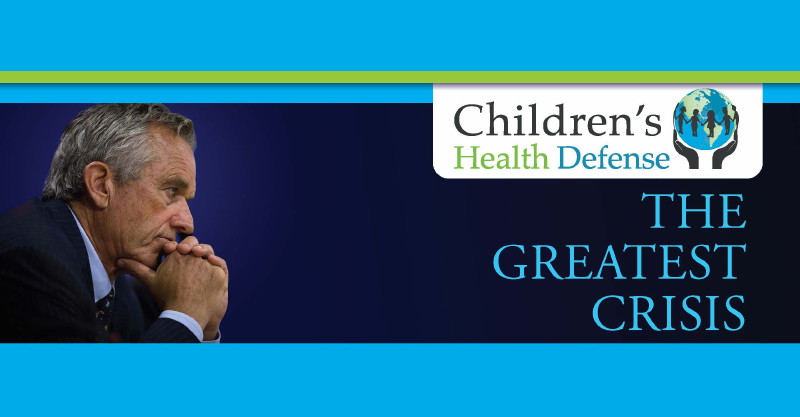
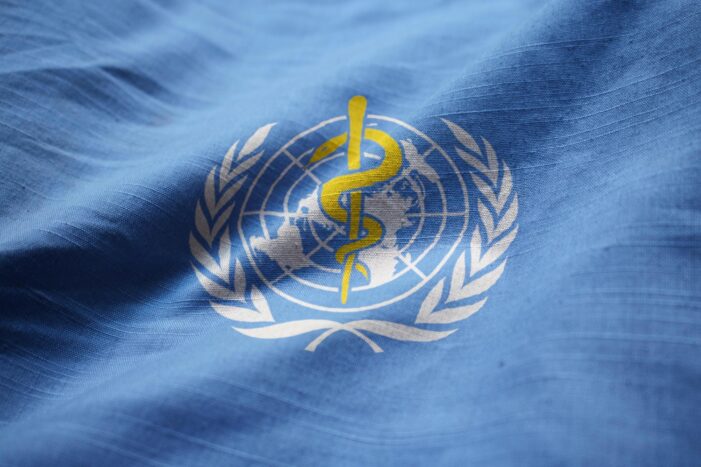
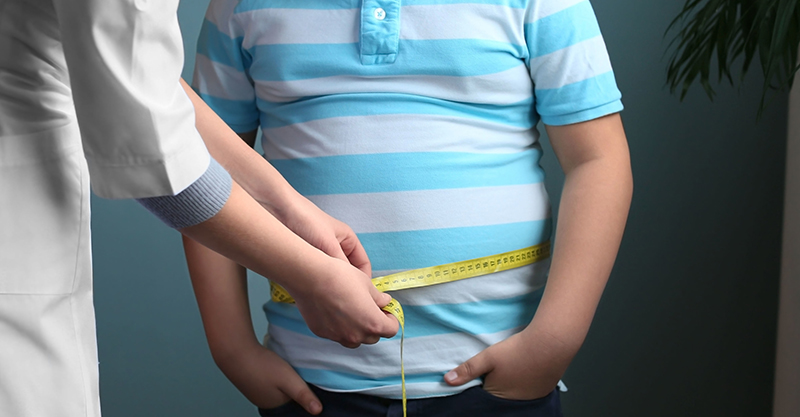







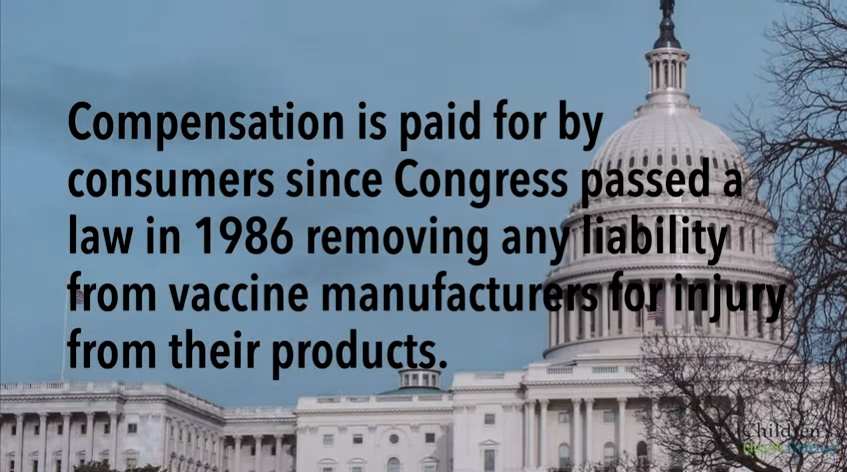

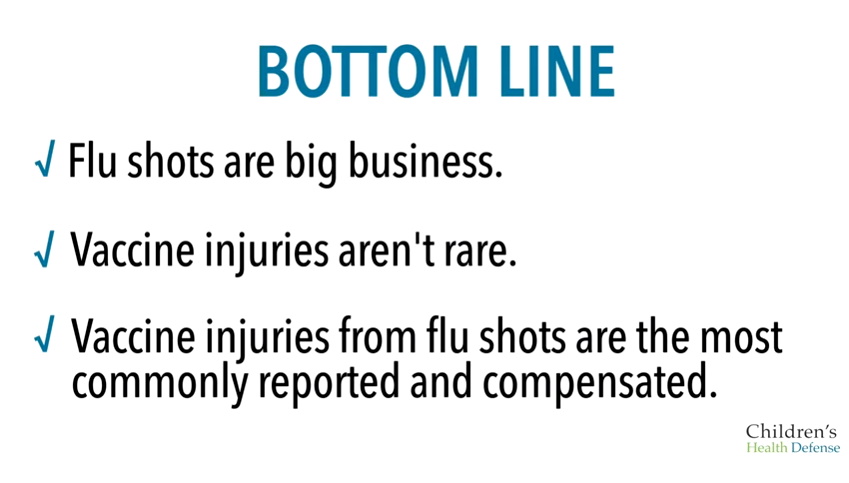
 In her meticulously referenced testimony submitted to the Massachusetts legislature which is considering whether to eliminate religious exemptions from the childhood vaccination schedule, Meryl Nass, MD, board member of the Alliance for Human Research Protection, laid out the facts to refute the Pharma-orchestrated propaganda about vaccines.
In her meticulously referenced testimony submitted to the Massachusetts legislature which is considering whether to eliminate religious exemptions from the childhood vaccination schedule, Meryl Nass, MD, board member of the Alliance for Human Research Protection, laid out the facts to refute the Pharma-orchestrated propaganda about vaccines.

